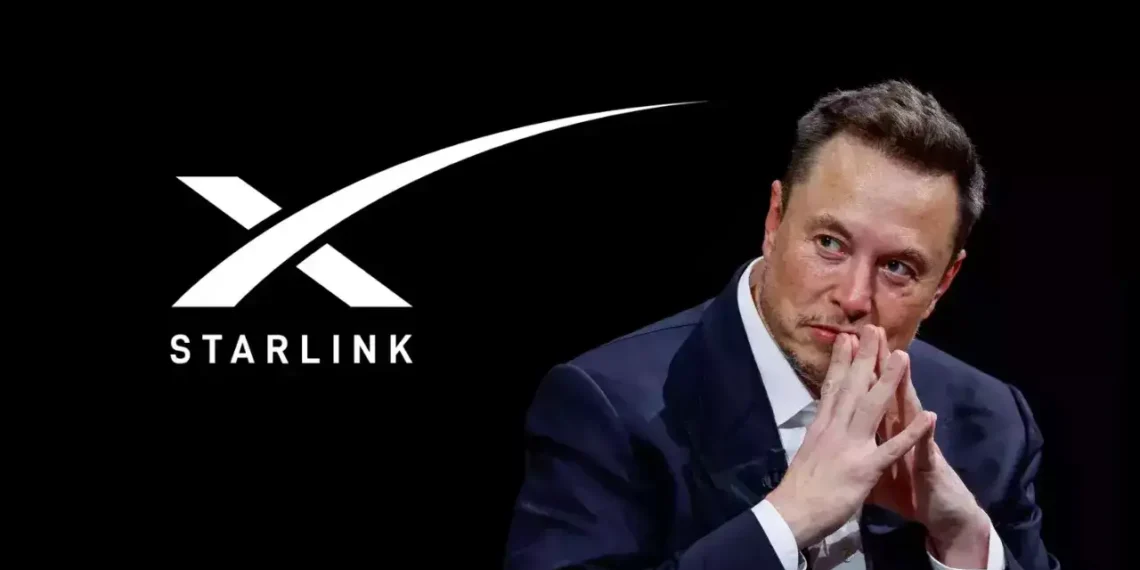South Africa’s government has firmly denied making special concessions for Elon Musk’s Starlink, following a political storm sparked by recent policy changes that would allow multinational companies to bypass strict local ownership requirements.
Communications Minister Solly Malatsi told Parliament on Tuesday that the country remains committed to its Black economic empowerment laws, insisting the new policy directives are not tailored to benefit Musk or his satellite internet company. His remarks follow growing scrutiny after the proposed changes were published just a day after President Cyril Ramaphosa returned from a visit to the United States, where he met with U.S. President Donald Trump.
“We are not attempting to open a special dispensation for Starlink or any other company or an individual,” Malatsi told the parliamentary communications committee.
The controversy centers on a government policy shift that would allow communications firms to fulfill empowerment obligations through “equity equivalent” investments, such as contributions to broadband infrastructure, instead of the traditional requirement to sell 30 percent of local equity to historically disadvantaged South Africans.
Critics have questioned the timing of this announcement, pointing to its proximity to Ramaphosa’s U.S. visit. Notably, the policy update came the day after Ramaphosa returned from his trip, during which economic cooperation was on the agenda. Ahead of the meeting with Trump, the South African presidency indicated that potential investment opportunities involving Elon Musk’s companies could be discussed. However, Ramaphosa later clarified that “Starlink did not come up.”
Equity Shift For Starlink Raises Local Concerns
The revised policy, although still in draft form, has attracted backlash from opposition MPs and the chairperson of the parliamentary communications committee. They have accused Minister Malatsi of undermining the integrity of South Africa’s empowerment laws to appeal to foreign investors like Starlink.
Despite this criticism, Malatsi defended the draft directive, saying it aligns with longstanding government goals of expanding digital access while attracting global tech firms. He also emphasized that the policy has been in development well before the U.S. visit.
“There is no underhanded effort … to railroad this into the South African public,” he said, stressing that his ministry aimed to release the draft by the end of May regardless of international developments.
He reiterated the core of South Africa’s empowerment strategy: “Transformation is sacrosanct in our country … it’s a non-negotiable in order for the country to achieve its aspirations.” These remarks underscore the government’s commitment to addressing historical racial disparities stemming from the colonial and apartheid periods.

Malatsi began formulating the equity equivalent policy last year, stating the need for regulatory flexibility to increase broadband connectivity across underserved regions. SpaceX, Starlink’s parent company, later submitted a letter to South Africa’s telecommunications regulator, criticizing the rigid equity ownership requirements and advocating for alternative models, including the very equity equivalent provisions now under debate.
While South Africa’s Black economic empowerment (BEE) laws apply across various sectors, the exact ownership quotas differ by industry. The telecommunications sector, which Starlink would operate in, has traditionally been bound by more stringent requirements.
Malatsi’s approach aims to bridge the gap between transformation imperatives and the realities of attracting high-tech international players that struggle to meet local equity thresholds. Nevertheless, the optics surrounding the draft policy’s timing, particularly its release following the Ramaphosa-Trump dialogue, have fueled public skepticism and political tension.
As the draft awaits public comment and further parliamentary scrutiny, the debate over how best to reconcile economic empowerment with global investment remains far from over.
READ ALSO: Ghana Remains a Top FDI Destination – GIPC CEO Reaffirms Government’s Economic Reset Agenda























